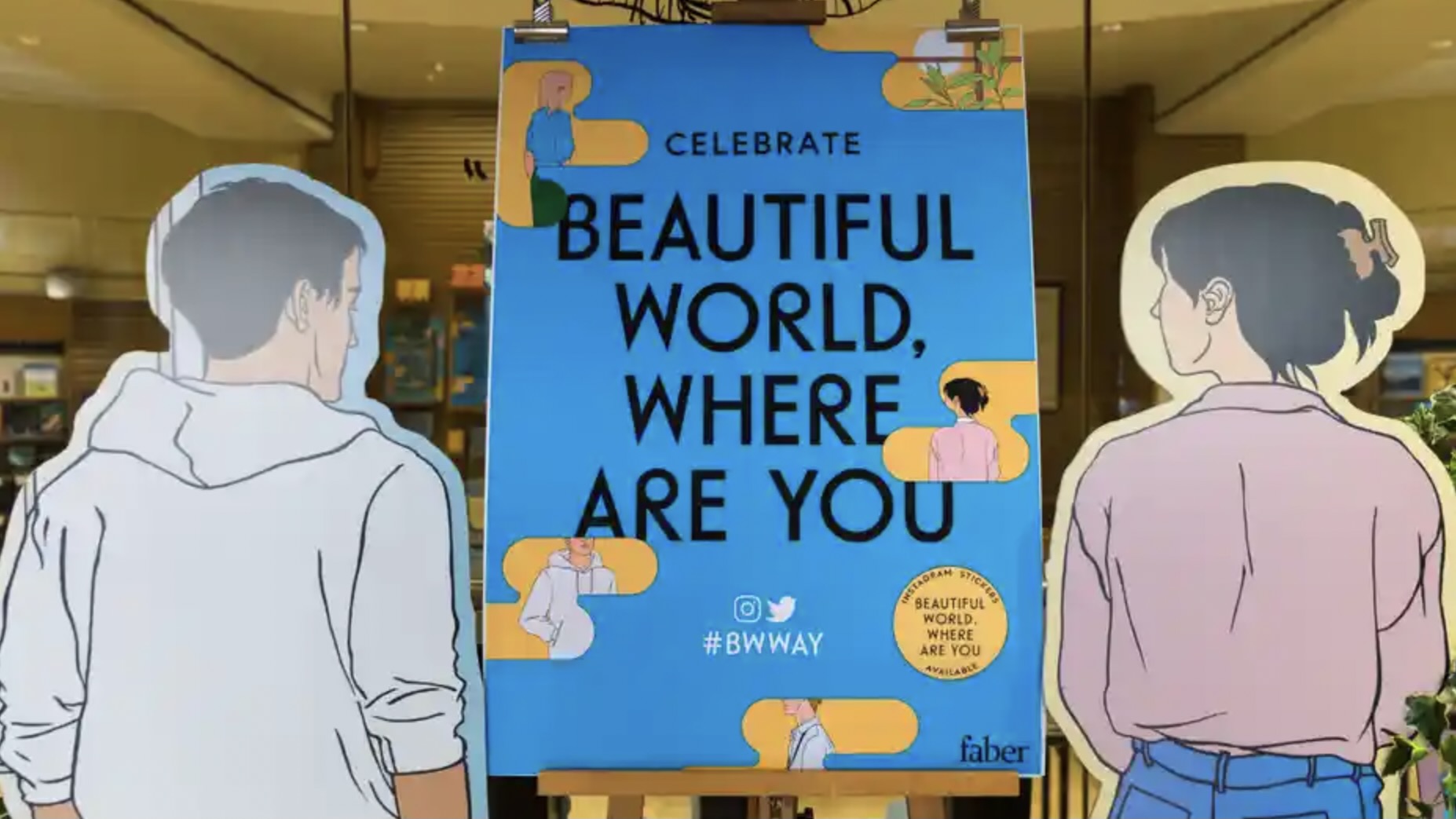Irish writer Sally Rooney has rejected a proposal from an Israeli publisher to publish a Hebrew-translated version of her latest book, “Beautiful World, Where are You?”. The writer’s decision was reportedly taken in line with the calls from the Palestinian-led Boycott, Divestment and Sanctions (BDS) movement. The BDS movement calls on people, companies and organizations around the world to boycott Israel institutions, especially those supported and linked to the government, in solidarity with Palestinians until Israel complies with international law and ends the illegal occupation of Palestinian territories, guarantees Palestinians basic rights, and respects the right of return.
In a statement reported by news outlets, Rooney said, “the Hebrew-language translation rights to my new novel are still available, and if I can find a way to sell these rights that is compliant with the BDS [Boycott, Divestment, Sanctions] movement’s institutional boycott guidelines, I will be very pleased and proud to do so.” Quoting reports and documentation of human rights violations and abuses by human rights groups such as Human Right Watch and B’Tselem, she added that they “confirmed what Palestinian human rights groups have long been saying: Israel’s system of racial domination and segregation against Palestinians meets the definition of apartheid under international law.”
She did also include the caveat that even though she is fully aware of many other states in the world that are also guilty of human rights abuses, in this particular case, she is responding to the specific calls by Palestinian civil society, trade unions and writers’ unions to participate in the boycott.
On the face of it, this caveat seemed like a preemptive clarification for the expected and systematic whataboutery that is usually dished out by Israeli hasbara and propaganda groups in responses to prominent personalities and organizations who decide to adhere to the Palestinian boycott calls. In a similar sinister propaganda effort, many Israeli social media users and pro-Israel social media accounts tried to malign and discredit the author’s decision by spreading false rumors that she is boycotting the Hebrew language as a whole. The blatant falsehood was met with strong disapproval and opposition from many on social media who condemned these efforts to spread falsehoods about the decision and to try and portray it as anti-Semitic, a widely used propaganda trick by Israel and its supporters.
In May this year, during the 11-day Israeli aerial bombing campaign against the Gaza strip which eventually killed more than 250 Palestinians, including 67 children, and injured approximately 2500 others, Rooney signed a petition condemning the Israeli aggression. The petition, signed by hundreds of artists and cultural workers, demanded that governments “cut trade, economic and cultural relations” with Israel and terminate support for the Israeli military until it stops its highly asymmetrical and unabated military violence against Palestinians.
With her latest decision, she joins a list of various prominent and widely read authors and writers who have also decided to boycott Israeli publishing houses from releasing Hebrew versions of their books, including Pulitzer prize-winning author Alice Walker and British-Pakistani author Kamila Shamsie. In the case of Rooney, the publishing house in question, Modan, is well known for its ties with the Israeli military and defense industry and has also published books for the Israeli defense ministry. Rooney, in her statement regarding her decision also said that “in the meantime I would like to express once again my solidarity with the Palestinian people in their struggle for freedom, justice and equality.”
The Palestinian Campaign for the Academic & Cultural Boycott of Israel (PACBI) in a statement lauding the writer’s decision said that “Palestinians warmly welcome acclaimed Irish author Sally Rooney’s decision to refuse a deal with Modan Publishing House, an Israeli publisher complicit in Israel’s regime of apartheid, occupation & settler-colonialism that killed more than 240 Palestinians in May this year alone.”
It also reminded people of the successful international boycott campaign of Apartheid South Africa. It also noted the special ties of solidarity between “Irish cultural figures and the Palestinian struggle for freedom, justice and equality,” adding that more than 1,300 Irish artists have so far added their names to the Ireland Palestine Solidarity Campaign’s calls to culturally boycott Israel. Ireland has long been a stronghold of anti-imperialist solidarity, with especially strong ties to Palestine, due to its own struggle against colonialism and for self-determination.





